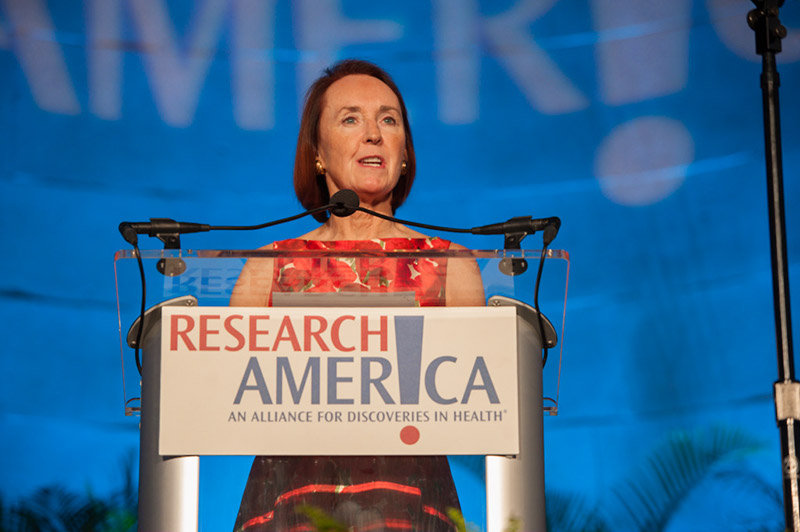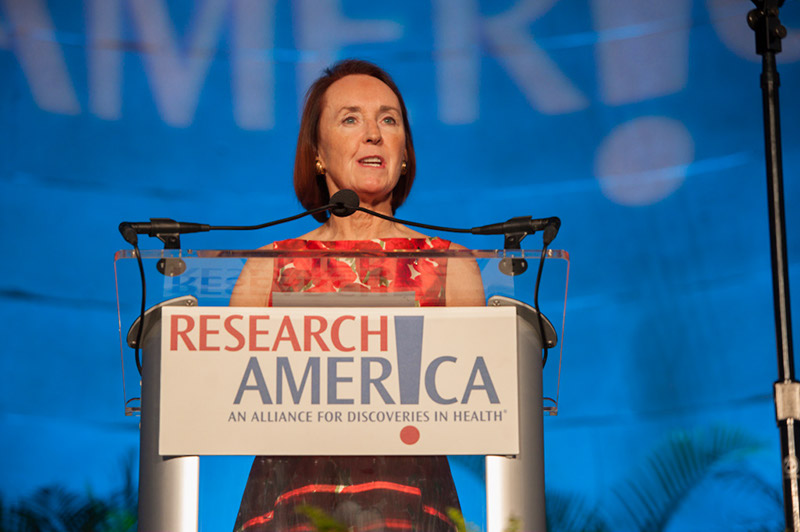March Madness

 Dear Research Advocate,
Dear Research Advocate,
OMB has recommended cuts to FY17 appropriations, which would precede, if you will, the proposed FY18 cuts. As noted in our statement, these proposed cuts contradict worthy goals the President established for his tenure in office. They also fly in the face of public opinion. Fortunately, it appears Congress is not playing ball. Please use this editable message to say no to reductions and yes to passage of an FY17 omnibus bill. Reliable sources say the bill includes a $2 billion boost for NIH, as well as increases for CDC, FDA and NSF.
The media is chock-full of commentary and quotes supporting investment in research and public health. A masterful Washington Post op-ed by Dr. Andrew Hamilton, president of New York University, discussed what’s at stake when elected officials entertain cuts to research. An editorial in the New York Times included my comments regarding such cuts. Quotes abound from pro-research members of Congress: Reps Cole (R-OK), Cohen (D-TN), Cummings (D-MD); Sens. Alexander (R-TN), Collins (R-ME), Durbin (D-IL), and more. A compelling op-ed promoting global health investment was featured in USA Today; a strong defense of basic research in the San Jose Mercury, and the list goes on…
During a House Appropriations Committee hearing yesterday, HHS Secretary Price was asked to defend the $5.8 billion NIH cut included in the President’s FY18 “skinny” budget. He cited “indirect costs,” asserting that more research could be funded if indirect costs were excluded. Reaching such a conclusion assumes either that indirect costs aren’t a necessary part of research, or that someone else will pay them.
As a veteran of similar — often heated — indirect cost discussions in the 1980s and 1990s, I can attest to widespread misunderstanding on the topic. My experience is that the disagreements come down to who will pay these costs, not to why the spending is important. It’s easy to understand why logistical support, operations control, human resources and the other invisible parts of fielding an army are paid for by the taxpayer: Americans value the protection of our nation. We need to connect the dots on indirect research costs, because Americans also value the protection of our health.
We need to be thinking and talking about the value proposition as we work to ensure research isn’t parsed into decline. But it is reasonable to ask whether some costs are necessary. There are candidate considerations for that, including reducing the onerous administrative burden the federal government places on researchers and research institutions in the form of regulations and reports.
Compelling new evidence from United for Medical Research on the massive benefits of NIH investment is ready for use in advocacy! Write an op-ed or LTE (here is a recent example from The Tennessean). Join the march for science. Use our new factsheet on multiple sclerosis to illustrate how research saves lives and money. Let’s make some noise; together we’ll make a difference.
The FDA is considering establishing an “Office of Patient Affairs” tasked with coordinating patient engagement across the agency. You can weigh in. Meanwhile, the first hearing on Dr. Scott Gottlieb’s nomination for FDA commissioner has been announced for next week.
Onto a final topic, the nominations for two of our nation’s most prestigious awards, the National Medal of Science and the National Medal of Technology and Innovation are due April 7. Please consider nominating a scientist/innovator for these honors.
Sincerely,
Mary Woolley




